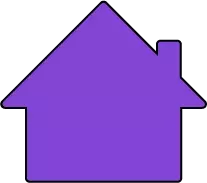Red Flag Landlords
Last Reviewed:
Reviewed By:

Understand your rights as a tenant, document all interactions, and report any illegal landlord practices to protect yourself from unfair treatment.
Landlords sometimes engage in practices that may be unfair or even illegal. Here are some common issues that tenants might face:
Illegal Entry
- Lack of Notice: Landlords might enter the rental property without giving the required notice or without the tenant's permission. They are not allowed to do this except in emergencies.
Know Your Rights!
You have the rights to reasonable privacy and the quiet enjoyment of your rental unit.
To legally enter a rental unit, landlords must provide tenants with written notice at least 24 hours – but not more than 30 days – before entering. The notice must state:
- the date
- the time (between 8am and 9pm) and
- a reasonable reason for entry, such as making repairs or completing a monthly inspection.
There are some exceptions like in an emergency, they have a legal order to enter or you live in supportive housing.

Improper Evictions
- Illegal Evictions: Attempting to evict tenants without providing a legal reason or without following proper legal procedures. They might not give you enough notice or are not truthful about the reasons for evicting you (e.g. they lie about family members moving in or starting renovations).
Know Your Rights!
Landlords are allowed to evict you only for specific reasons. If your landlord wants to evict you, they must give you a written notice form with an acceptable reason for eviction according to the Residential Tenancy Act.
If your landlord doesn’t follow through on their reasons for evicting you (like moving their family member in) you can apply to the Residential Tenancy Branch for 12 months of rent as compensation!



Hot Tip
If you receive an eviction notice DO NOT IGNORE IT. Read the notice carefully. You only have a short time to dispute it.
Shoddy Maintenance and Repairs
- Neglecting Repairs: Ignoring or delaying necessary repairs, leading to unsafe or uninhabitable living conditions.
- Charging Tenants for Repairs: Requiring tenants to pay for repairs that are the landlord’s responsibility.
Know Your Rights!
Landlords must ensure that their rental properties:
- comply with health, housing, and safety standards required by law and
- Are suitable for occupation – factoring in the age, character, and location of the unit.
- They are responsible for fixing important things like the heating, electricity and elevators among others.
Know Your Responsibilities!
You are responsible for maintaining reasonable health, cleanliness, and sanitary standards in your rental unit.
If you notice something needing repair, ask your landlord in writing right away.
- Keep a record of all your attempts to get the landlord to fix the issue and photos of the problem.
- If they take too long, you can apply to the Residential Tenancy Branch for an order making them do the repair and possibly getting you some money for your troubles.

Discriminatory Practices
- Discrimination: Refusing to rent to or treating tenants differently based on race, gender, age, disability, religion, or other protected characteristics.
Know Your Rights!
The BC Human Rights Code protects you from discrimination in housing. Landlords cannot refuse to rent to you because you have children, if you are on welfare, or of a certain race or nationality for example.
Landlords can legally refuse to rent to you because you are under 19.
If you are worried you are being discriminated against you can apply to the BC Human Rights Tribunal.


Dig Deeper
Human Rights from the Tenant Resource and Advisory Centre Housing from the Human Rights Tribunal
Overcharging for Rent
- Illegal Rent Increases: Increasing rent more than the amount allowed by local rent control laws or lease agreements.
Know Your Rights!
Landlords can only raise the rent once every 12 months (and not in the first year of renting).
The rent increase can only be by a percentage equal to inflation unless the landlord applies for an additional rent increase through the Residential Tenancy Branch.
Landlords must provide 3 full month notice, using the proper form, before raising the rent.

Illegal Terms On Your Lease
- Ignoring Legal Requirements: Not complying with the Residential Tenancy Act and regulations, such as health and safety codes.
Know Your Rights!
Landlords and tenants cannot avoid the Residential Tenancy Act by agreeing to terms forbidden by the law. You are guaranteed your rights under the Residential Tenancy Act, whatever your agreement says.
So if your landlord tries to include a term in your agreement saying you can never have a guest stay overnight, that is illegal and not enforceable because the law says your landlord cannot unreasonably restrict a tenant’s guests.

Withholding Security Deposits
- Unjust Deductions: Landlords might make unwarranted deductions from security deposits for normal wear and tear or for repairs that are the landlord’s responsibility.
- Delayed Return: They may delay returning the deposit.
Know Your Rights!
Landlords can’t simply decide to keep your deposit. Either they need you to give them written permission to do so or they have to apply for dispute resolution to keep some or all of your deposit. Otherwise, your landlord must return your deposit within 15 days from when you provide your forwarding address in writing and your tenancy has ended. If after 15 days they don’t return your deposit (and they haven’t gotten your permission or applied for dispute resolution) you can apply for double the amount of the deposit.
How to Protect Yourself
- Know Your Rights: Familiarize yourself with tenant rights, Take a free online course: Renting it Right
- Document Everything: Keep detailed records of all communications, agreements, and payments.
- Report Violations: Report any illegal or unfair practices to the Residential Tenancy Branch or tenant advocacy groups.
- Seek Legal Help: Consult with a tenant lawyer if necessary.

 Crime & Police
Crime & Police Money Stuff
Money Stuff Health & Sexuality
Health & Sexuality Legal Life Skills
Legal Life Skills Driving
Driving Family
Family Work & School
Work & School Housing
Housing Basic Rights
Basic Rights
